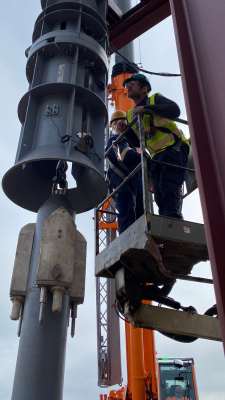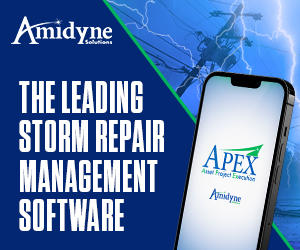£33 million of Government funding has been awarded to develop green technologies for ports and ships - accelerating the UK's race to decarbonise the sector while supporting jobs in coastal communities across the country, helping grow the economy in the long term.
The £33 million has been awarded to 33 projects across all twelve regions of the UK to deliver demonstrations, factory trials and feasibility studies.
The funding comes from the fourth round of the government's Clean Maritime Demonstration Competition (CMDC4), which focuses on developing a range of clean maritime technologies including electric, hydrogen, ammonia, methanol, wind power and more.
EMEC is involved in two of the projects awarded funding; one feasibility project and one demonstration project.
Techno-economic feasibility study on e-fuels to decarbonise maritime activities
The feasibility project is being led by CATAGEN, a global leader in design and manufacturing of net zero technologies, along with project partners EMEC, Orkney Islands Council, Highland Fuels Limited, and Belfast Harbour Commissioners. The project consists of a techno-economic feasibility study exploring the opportunity of bringing novel clean fuel production technology to market to help decarbonise the UK's maritime activities.
EMEC will feed in experience and learnings from previous maritime projects that it has been involved in to assess the role of synthetic fuels in the wider decarbonisation of the maritime sector, exploring the advantages and disadvantages over other technologies as well as assessing its applicability in Orkney.
Pull and Lock Marine (PALM) connection system demonstration at EMEC Scapa Flow test site
The demonstration project is being led by Apollo, which is gearing up to trial an offshore charging system at EMEC's Scapa Flow test site in Orkney. As offshore wind pushes into deeper waters and the supporting fleet strives to decarbonise, limitations are encountered in the charging capacity of electrically-powered marine vessels (marine EVs) that seek to support construction and operations.

Apollo's solution, the PALM Charger, is based on the company's Pull and Lock Marine (PALM) connection system and aims to enable a vessel to connect to an offshore mounted charging point to extend the range of marine EVs. The CMDC project will include a 14-day offshore deployment of a test rig onto a moored platform at EMEC's test site.
EMEC will plan and lead the testing operations, working with Leask Marine to set up a test rig and undertake vessel connection and disconnection operations in a range of sea states to demonstrate the mechanical and electrical connection systems in an offshore environment. This will help build understanding of the vessel handling operations to refine the commercial design of the system. As a marine contractor, Leask Marine represents a group of potential future customers, informing the marine operational practicalities and market interest.
For the full list of CMDC4 winner, see: Multi-year clean maritime demonstration competition










